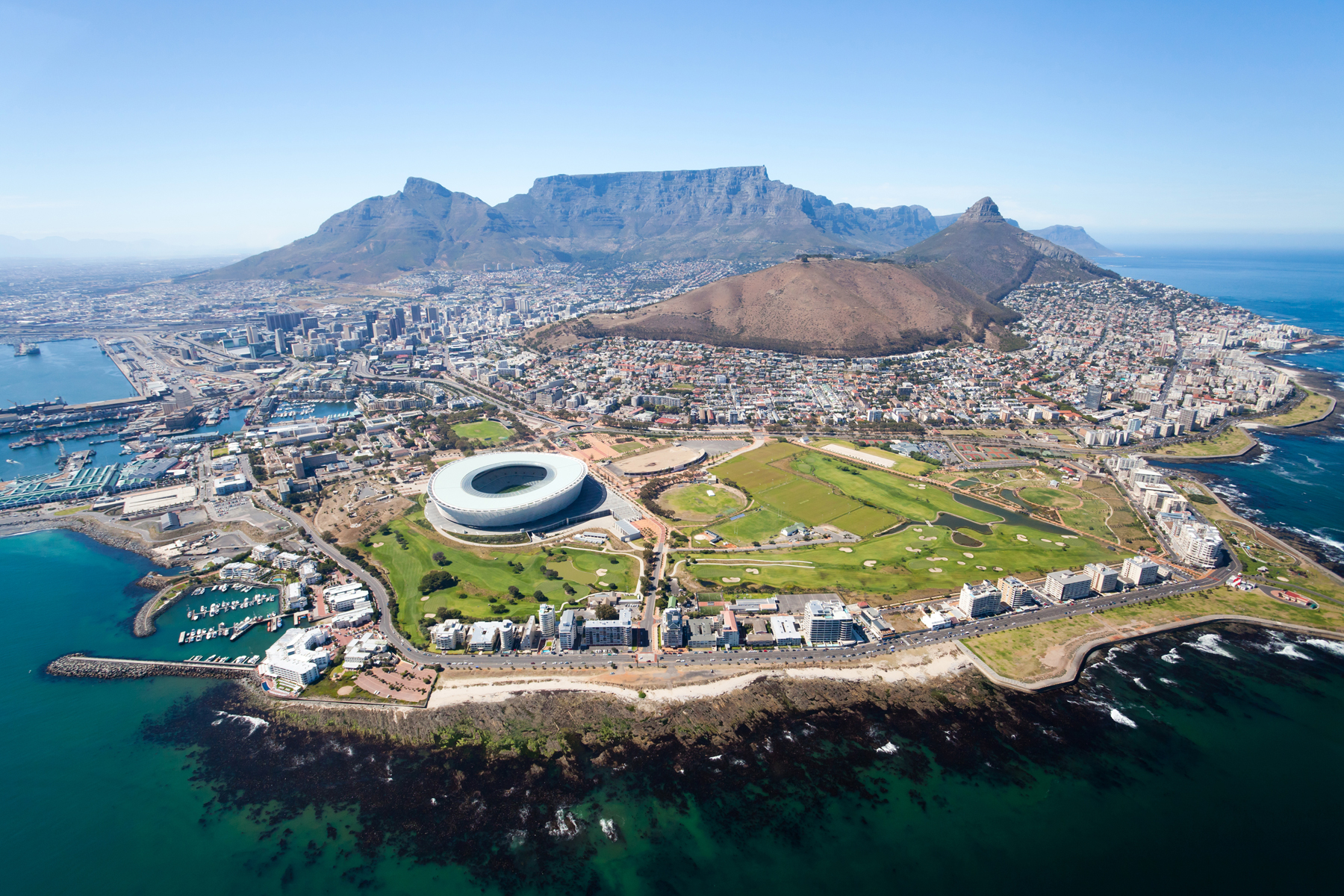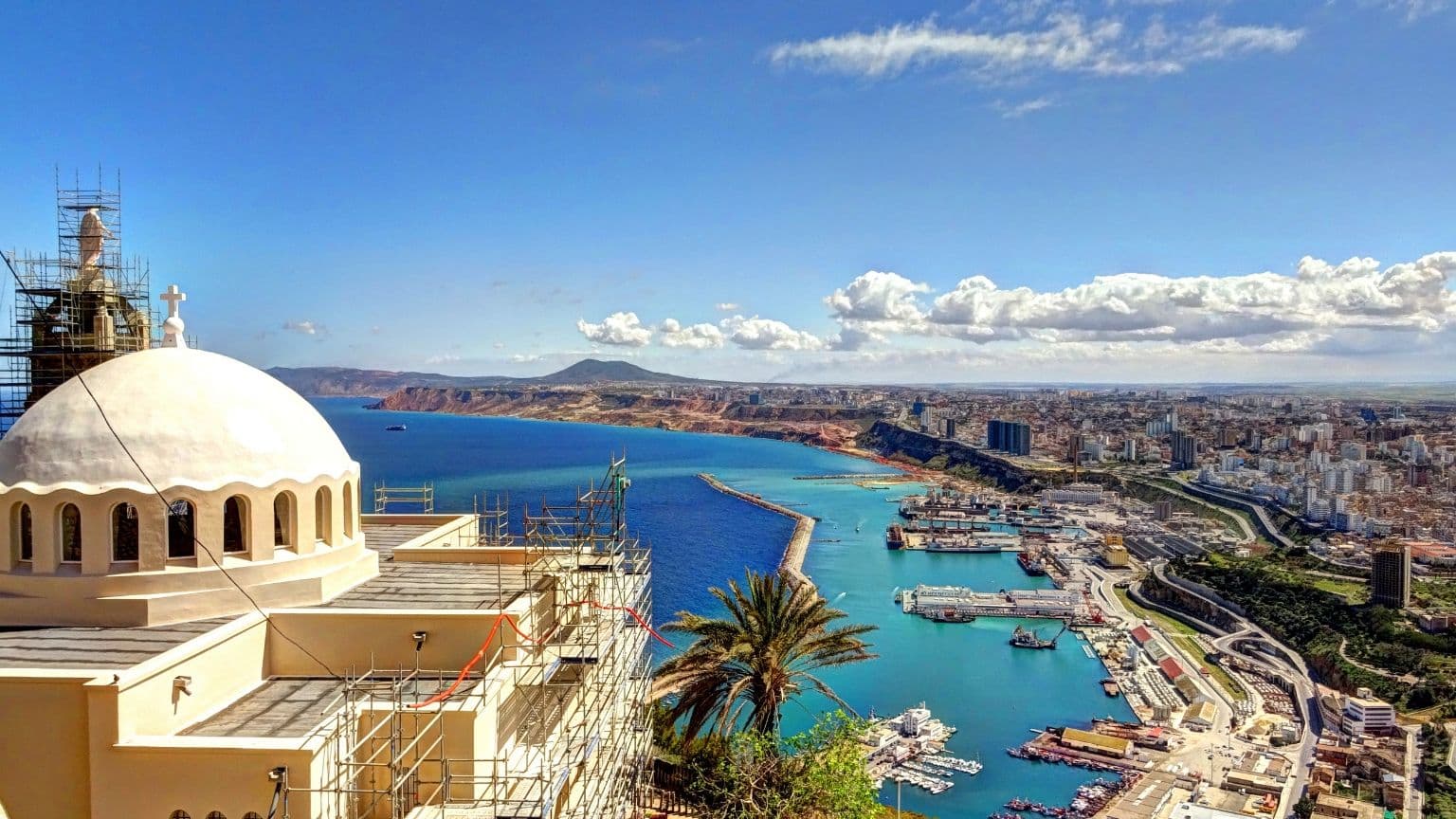ARTS & CULTURE
Top 9 African Countries With High Quality Life
Published
1 year agoon
By
Juliet Udoh
Quality life is the overall well-being and standard of living experienced by individuals or communities within a certain geographic area.
Quality life includes a variety of elements that contribute to people’s happiness, health, and overall satisfaction with their lives. These factors can include income, healthcare, education, social services, safety, and environmental conditions, among others.
A high-quality life often correlates with greater life expectancy, better healthcare access, higher educational attainment, and increased economic opportunities.
According to a research report by US News and World Report, there are 9 African countries with the highest quality of life in 2023.

1. South Africa
With highly developed financial, industrial, and service sectors, South Africa has the most developed economy in Africa. It provides a range of employment options and career chances. Renowned institutions and schools can be found in South Africa, making a high-quality education available to everybody. The nation places a high priority on the advancement of education. The healthcare system is comparatively advanced.
On the continent, South Africa is at the forefront of medical research and development. The country’s infrastructure, which includes a network of roads, ports, and airports, is well-established. This makes travelling for both business and pleasure easier. South Africa is a well-liked tourist destination due to its varied landscapes, wildlife, and vibrant culture. For individuals who value natural environments and outdoor activities, it provides a good standard of living.
2. Tunisia
Tunisia’s political stability has allowed it to concentrate on economic growth and raising the living standards of its people. Tunisia has made investments in education, leading to a high literacy rate. Its educational institutions, including universities, are well-regarded in the region. Tunisia also has a growing healthcare sector with easily accessible medical facilities and is well-known for medical tourism.
Tunisia’s Mediterranean beaches, ancient attractions, and dynamic cities draw visitors from all over the world, which helps to boost the country’s economy. The country’s citizens enjoy a high standard of living thanks to its lengthy history, diverse cultures, and delectable cuisine.
3. Ghana
Ghana’s democratic government and political stability create an atmosphere that is favourable to both social and economic progress. Ghana has improved education significantly, with a focus on access and quality. There are reputable universities there. Efforts are being made to increase access to medical services as the healthcare sector continues to change.
Healthcare also includes the use of conventional medication. Ghana’s economy is supported by the exports of gold, cocoa, and oil. Middle-class growth has been a result of economic expansion. Ghana has a rich cultural heritage, which is reflected in its ancient landmarks, welcoming people, and annual festivals.
4. Morocco
Morocco has a broad economy that includes mining, manufacturing, tourism, and agriculture. It has expanding middle class and employment prospects. The nation has also made investments in education, which have increased the literacy rate and increased access to high-quality education.
Morocco’s healthcare system has improved, offering easily accessible medical care and cutting-edge facilities. The country is a popular travel destination due to its historic cities, beautiful scenery, and cultural attractions. Morocco has improved the quality of its life through developing its infrastructure, which includes a high-speed rail system and ports.
5. Egypt
Egypt’s historic ruins and rich history draw tourists and scholars, boosting the country’s economy. The country places a high priority on education and has reputable universities and research facilities. Egypt offers affordable medical care, with modern hospitals and clinics.
Employment opportunities are provided by the nation’s strategic position and diversified economy, which includes agriculture, manufacturing, and energy. Egypt’s rich cultural history, which includes its music, art, and cuisine, improves the quality of life for its citizens.
6. Kenya
Kenya’s economy has been growing, with the support of industries like technology and tourism. Job opportunities have expanded as a result of this. With a large number of institutions and colleges, the country has made progress in enhancing access to and the quality of education. With improved access to medical services and initiatives to fight diseases, Kenya’s healthcare system is advancing.
Kenya is a popular tourist destination thanks to its wildlife, national parks, and diversified landscapes, which help to support the country’s economy. Kenya’s improvements to the infrastructure, such as new roads and airports, improve the quality of life for locals.
7. Zambia
Zambia’s political stability and peaceful power changes help to create an atmosphere that is conducive to development. The country has expanded its economy beyond copper mining and created job possibilities which shows that the nation has been working.
Zambia is dedicated to enhancing access to high-quality education, which will raise the literacy rate. Also, with programmes to fight diseases and enhance maternal and child health, the country is making progress in this area. Zambia’s natural resources, including copper and agriculture, contribute to its economic well-being.
8. Cameroon
Cameroon’s political stability supports economic growth and social development. The nation’s diverse economy, which includes manufacturing, agriculture, and the oil industry, offers opportunities to its residents.
Cameroon has made investments in education, resulting in greater access to primary and secondary education.
The improvements to healthcare services, particularly in rural regions, help people live better lives. The unique traditions and rich culture of Cameroon improve the lives of its people.
9. Algeria
Algeria’s natural gas and oil deposits offer funding for the construction of roads, schools, and healthcare facilities. Algeria offers free education to its citizens, resulting in high literacy rates and a well-educated population.

Medical centres and services are easily accessible which improves the wellbeing of the population.
Also, to improve living conditions, government programmes provide subsidised housing and food.
If you like to read more of these articles, check here.
You may like
-


Here Are The 7 Most Ancient Countries On Earth
-


Hollywood Veteran Actor, Denzel Washington To Star In “Black Panther 3”
-


Do Bras Really Keep Breasts From Sagging? Check This Out!
-


Ghana Goalkeeper, Richard Ofori Arrives In South Africa To Sign For AmaZulu
-


South African Rising Star, Tyla Graces ELLE Magazine Cover
-


5 Things You Should Always Keep Private
ARTS & CULTURE
Ijele Masquerade: The “King Of Masquerades” In Igbo Land
Published
1 month agoon
December 21, 2024
The Ijele Masquerade, often referred to as the “King of Masquerades,” holds a revered position in Igbo culture. It is not only the largest masquerade in Africa but also a symbol of unity, spirituality, and cultural identity among the Igbo people.
Its towering presence, vibrant artistry, and profound symbolism make it a centrepiece of Igbo traditions.
The Ijele Masquerade originated in southeastern Nigeria, particularly in Anambra and Enugu states. Oral traditions trace their roots to the Akwunechenyi dance group in Umueri.
It began as a celebratory and protective figure, initially created to intimidate invaders and celebrate royalty. Over time, it evolved into a cultural icon representing greatness and the Igbo people’s connection to their ancestors.
Standing between 12 and 15 feet tall, the Ijele Masquerade is a marvel of craftsmanship. It is constructed from bamboo, colourful fabrics, and intricate carvings.
Its structure is divided into two segments: the upper (Mkpu Ijele) and the lower part (Akpakwuru Ijele), separated by a symbolic python figure, Eke-Ogba.
This design signifies the balance between the spiritual and earthly realms. The preparation of the masquerade requires extensive collaboration, with over 100 men working for six months to complete its elaborate design.
Cultural and Spiritual Significance of Ijele Masquerade
The Ijele Masquerade embodies the collective spirit of the Igbo community. It is a representation of the ancestors’ guidance, protection, and blessings.
Traditionally performed during festivals, burials, and special ceremonies, the Ijele is believed to have spiritual powers, such as warding off evil spirits, promoting fertility, and bringing healing.
Its performance is both a spectacle of entertainment and a deeply spiritual ritual that connects the living to their heritage.
The Ijele Masquerade is a highlight of Igbo cultural festivals, often serving as the grand finale. Accompanied by music, drumming, and traditional dances, its performance captivates audiences with its grandeur and artistry.
These events also serve as a platform for preserving and promoting Igbo heritage, attracting tourists, and generating economic benefits for the community.
Challenges Facing Ijele Masquerade
Despite its cultural significance, the Ijele Masquerade faces challenges in the modern era. Urbanisation, globalisation, and declining interest among younger generations threaten its preservation.
The elaborate nature of its preparation also requires significant funding and resources, which are often scarce. Additionally, cultural appropriation by outsiders risks diluting its authenticity and significance.
Efforts to preserve the Ijele Masquerade have gained international recognition. In 2009, UNESCO listed it as an intangible cultural heritage in need of safeguarding.
This recognition highlights the importance of supporting local communities to maintain their traditions. Advocacy for funding, education, and tourism initiatives is vital to ensuring the continuity of this cultural treasure.
A Symbol of Igbo Identity
The Ijele Masquerade remains a powerful symbol of Igbo identity and resilience. It is a testament to the creativity, spirituality, and unity of the Igbo people.
As it continues to inspire pride and admiration, the Ijele Masquerade underscores the importance of preserving cultural heritage in a rapidly changing world.
By supporting initiatives that promote Ijele, individuals and organisations can help sustain this remarkable tradition for future generations.
Its legacy is not only a source of pride for the Igbo people but also a significant contribution to the global appreciation of cultural diversity.
For further details about the Ijele Masquerade, see sources like UNESCO’s Intangible Cultural Heritage listing and articles exploring its cultural significance.
Read more on culture here.

What is an anklet?
An anklet is a versatile piece of jewellery that women typically wear around their ankles. Crafted from materials like chains, beads, or a mix of both, anklet meanings vary across cultures and styles.
Many fashionable women choose anklets to make a bold style statement, embracing their elegance and charm.
In Nigeria, people often call this accessory a “leg chain” or “ankle chain,” reflecting its cultural relevance. In pop culture, it’s popularly known as an “ankle bracelet.”
Anklets here focus more on fashion than symbolism, though interpretations can differ. With various styles and intricate designs available, anklets offer countless aesthetic options, allowing women to showcase their personal flair.
Ultimately, anklet meanings can be deeply personal, influenced by tradition, culture, or simply individual taste.
Cultural and Historical Significance
Throughout history, anklets have held different meanings across various cultures. While some view them as mere adornments, others have associated them with deeper, sometimes controversial, connotations.
In some societies, ancient and modern, anklets symbolise promiscuity.
Early Usage in Ancient Civilisations
Egypt is often credited as the birthplace of anklets, but India played a significant role in their widespread acceptance. In India, anklets were part of traditional attire, known as pattilu, payal, or nupu.
These terms also include Paujinupur and padapadma. Early Indian literature, such as the first-century epic Silappatikaram, mentions anklets, highlighting their cultural importance.
Rajasthani women were known for their elaborate anklet designs, reflecting regional traditions.
Among the Odisha people, gold anklets were once reserved for warriors, while brides included them as part of their wedding regalia.
Married women often wore anklets to signify their marital status, and dancers used those with dangling bells to enhance their performances.
Similarly, in ancient Egypt, anklets indicated social status. Wealthy women wore gold anklets, while silver or leather versions were common among slaves and the poor.
These accessories, known as menefret or kholkai, reflected one’s place in the social hierarchy. Interestingly, some accounts suggest that anklets were linked to temple worshippers and even prostitutes, though these claims remain largely unverified.
Modern Evolution and Symbolism
Over time, the meaning of anklets has evolved significantly. In the 1970s, during America’s “sexual revolution,” anklets became symbols of female empowerment and liberation.
This era emphasised women’s freedom to express themselves, including their sexuality. Consequently, anklets began to carry connotations of promiscuity, especially within the “hotwife” culture.
The “Hotwife” Phenomenon
A “hotwife” refers to a married woman who engages in consensual extramarital relationships with her husband’s approval. Various anklet symbols reflect this dynamic:
- Two male symbols and one female symbol: Indicate openness to relationships with men of any race.
- Queen of spades: Represents a preference for Black men.
- Heart symbol: Suggests a happy marriage that includes mutually beneficial intimate relationships outside the primary partnership.
- The key to happiness: Denotes a marriage where the husband’s extramarital activities are contingent on his wife’s consent.
Anklets in Contemporary Nigerian Fashion
Today, many Nigerian women wear anklets purely for their aesthetic appeal, often unaware of the historical or cultural associations. For them, anklets are fashion accessories, not symbols of promiscuity or class distinction.
Despite lingering societal judgments, especially within conservative African contexts, it’s essential to recognize that fashion choices are personal.
Women should not face harsh criticism for wearing anklets, as these judgments stem from outdated or culturally irrelevant perspectives.
In conclusion…
Anklets are versatile fashion pieces that have transcended their historical roots. While some cultural connotations persist, modern women wear anklets to express their style and individuality.
It is crucial to separate fashion from judgement and allow women the freedom to make their own choices about their bodies and accessories.
Let’s appreciate anklets for what they are today: beautiful, empowering symbols of self-expression.
Read more articles here.
AFRICAN
The Only 4 African Countries That Have Won Miss Universe Title
Published
2 months agoon
December 7, 2024
While many African countries have sent representatives to the pageant, only a few have managed to clinch the coveted Miss Universe crown.
The Miss Universe pageant is one of the most prestigious beauty pageants worldwide. It has been a stage for countless beautiful women to showcase their elegance, intelligence, and talent.
1. South Africa
South Africa is the African country with the most Miss Universe wins. This stunning nation has produced four Miss Universe winners:
- Margaret Gardiner (1978)
- Demi-Leigh Nel-Peters (2017)
- Zozibini Tunzi (2019)
- Andrea Meza (2020)
These South African beauties have not only captivated the world with their beauty but have also used their platforms to advocate for important social causes.
2. Namibia
Namibia, a small country in Southern Africa, has also made its mark on the Miss Universe stage.
- Michelle McLean won the Miss Universe title in 1992.
This stunning Namibian beauty brought pride to her nation and continues to be an inspiration to many.
3. Angola
Angola, a country rich in culture and natural beauty, has also produced a Miss Universe winner.
- Leila Lopes was crowned Miss Universe in 2011.
Her win marked a significant moment for Angola and showcased the beauty and talent of African women.
4. Botswana
Botswana, a landlocked country in Southern Africa, may be small, but it has produced one of the most iconic Miss Universe winners.
- Ntsepa Motsepe won the Miss Universe title in 1999.
Her win was a surprise to many, but it solidified Botswana’s place in the pageant world.
These four African countries – South Africa, Namibia, Angola, and Botswana – have proven that African beauty is truly global.
They have inspired countless young women across the continent and beyond to dream big and pursue their passions.
As the Miss Universe pageant continues to evolve, we can only hope to see more African countries adding their names to this prestigious list.
Check here for more articles.
Latest


5 Things To Expect In Afrobeats In 2025
Afrobeats is poised to reach unprecedented heights in 2025 as Nigerian music continues its remarkable global ascent. The genre’s explosive...


Here Are The 7 Most Ancient Countries On Earth
The oldest countries in the world stand as remarkable testaments to human civilisation, each containing landscapes and monuments that narrate...


Why Self-Reflection Is More Important Than Resolutions
Millions of people embark on a yearly ritual: they sit down with a notebook and pen, eager to craft a...


Nollywood Director, Kemi Adetiba Teases King Of Boys 3
Nollywood director Kemi Adetiba has revealed that another instalment of King of Boys will be released on December 25, 2025....


John McEnroe Says He Can Be The Commissioner Tennis Needs Amid Doping Crisis
Recent doping controversies involving top players have not damaged tennis’s reputation, but John McEnroe believes that appointing a single commissioner...


“Everybody Loves Jenifa” Becomes Nollywood’s Highest-Grossing Film Of All Time
Nollywood filmmaker Funke Akindele has achieved a historic milestone with her latest film, “Everybody Loves Jenifa.” The film has officially...


FG To Premiere TV Series, “Hidden Riches” On Mining Sector On January 25
Nigeria’s Federal Government will launch an ambitious television drama series focused on the nation’s mining sector, premiering “Hidden Riches” on...


Qing Madi Delivers A Soulful Performance Of “Favourite Pyscho”
Rising Afro-RnB sensation Qing Madi launches into 2025 with a mesmerising performance on the prestigious COLOURS platform, showcasing her latest...


Taiwo Awoniyi’s First Goal Of The Season Seals Nottingham Forest’s Win Over Wolves
Taiwo Awoniyi made a triumphant return to Premier League action. He scored in stoppage time to help Nottingham Forest crush...


Tems, Ayo Edebiri, Wizkid & More Nominated For The 56th NAACP Image Awards
The 56th NAACP Image Awards have unveiled their nominations. It highlights various exceptional talents. These talents include Nigerian stars Tems,...
-Ad-




Police Deny Knowledge & Investigation Of VeryDarkMan’s Missing N180m

Funke Akindele Breaks Records Again As “Everybody Loves Jenifa” Surpasses ₦1 Billion In 12 Days

Speed Darlington’s ₦300m Rights Suit Against I-G Set For Hearing January 13

Cobhams Asuquo’s Birthday Look Exudes Cinematic Vibe

Paul Okoye And Wife Ifeoma Dedicate Baby Girl At Church

Olamide & Asake Officially Part Ways; Alleged Details Of Contract Termination Emerge

Emerse Fae Insists Simon Adingra Must “Work Hard” To Emulate Drogba In Premier League

Amad Diallo Determined To “Make History” With Struggling Manchester United

5 Reasons You Should Cut People Off Before 2025


